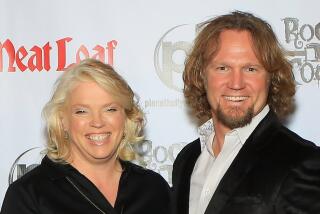SAG faction trying to keep power
Seeking to fend off a challenge to its leadership in the Screen Actors Guild, the group known as Membership First on Friday declared its own slate of candidates who will run in an upcoming board election.
The election, which will be decided Sept. 18, could be pivotal in charting the union’s course and determining whether, and how soon, the stalemate with the studios ends. The sides, sharply at odds over how actors should be paid in new media, failed to reach an agreement to replace a contract that expired June 30.
Membership First said it had a full slate of candidates to fill 11 Hollywood division seats on the national board, plus 22 seats for those who serve as alternate board members when regulars cannot attend meetings.
The candidates, whose eligibility to run must still be verified by the guild, include Joely Fisher, star of the sitcom “ ‘Til Death”; Keith Carradine, who played a special agent in the “Dexter” TV series; and Scott Bakula, known for his role as the captain in “Star Trek: Enterprise.”
The group currently holds a slim majority on the 71-member board and dominates the union’s negotiating committee, which called the studios’ “final offer” inadequate.
But it faces a challenge from a rival faction calling itself “Unite for Strength,” which includes “Private Practice” star Kate Walsh and Doug Savant of “Desperate Housewives.” They accuse the incumbents of mishandling the contract negotiations and waging a misguided campaign to discredit the smaller actors union, the American Federation of Television and Radio Artists, which recently reached a new three-year contract with the studios.
Carradine said he wasn’t sure who was to blame for the falling-out with AFTRA, but praised SAG leaders for holding their ground in negotiations with the studios.
“I do believe [their] positions are fair and valid,” he said. “The middle-class actor is a becoming an endangered species.”
Membership First, which has made issues affecting so-called middle-class actors a priority issue, opposes merging the two unions, contending that AFTRA has too many nonactors as members. The group’s opponents say a merger would end needless sparring and strengthen the guild’s bargaining leverage.
--
More to Read
The biggest entertainment stories
Get our big stories about Hollywood, film, television, music, arts, culture and more right in your inbox as soon as they publish.
You may occasionally receive promotional content from the Los Angeles Times.











